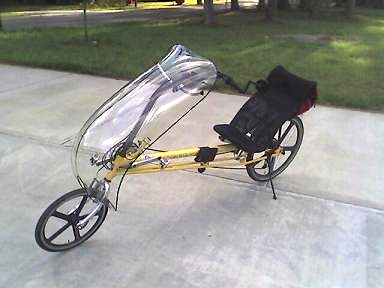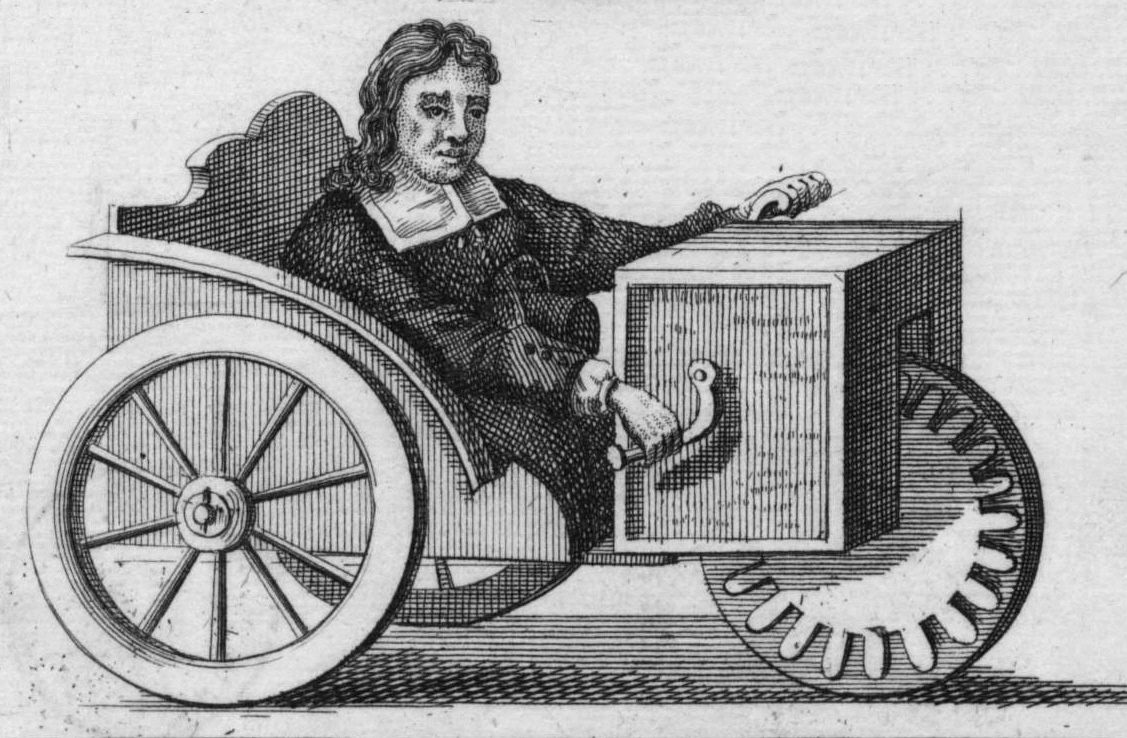|
Leitra
Leitra is a Danish company and also the name of the velomobile it produces. In Sweden designs for a two-person, four-wheeled velomobile called the Fantom were sold as blueprints in the 1930s and 40s. Many thousands of sets of DIY instructions were sold, but very few vehicles were actually built. The body was made of plywood. The oil shock of 1978-9 inspired Carl Georg Rasmussen, a Danish engineer and pilot, to design and build the first practical velomobile. A tadpole recumbent tricycle with full glass-fiber fairing, it was dubbed the Leitra (''Danish Danish may refer to: * Something of, from, or related to the country of Denmark People * A national or citizen of Denmark, also called a "Dane," see Demographics of Denmark * Culture of Denmark * Danish people or Danes, people with a Danish a ...'': Let individuel transport, meaning "light individual transport"). About the company Carl Georg Rasmussen initially formed the company as a limited partnership with ten investors ... [...More Info...] [...Related Items...] OR: [Wikipedia] [Google] [Baidu] |
Carl Georg Rasmussen
Carl Georg Rasmussen is a mechanical engineer with a PhD in physics; an ecologist specializing in noise pollution; and a light aircraft pilot. He is the designer and manufacturer of the Leitra velomobile. Velomobiles were produced in the 1930s, but commercial production ended after the second world war. Rasmussen's Leitra, or "light individual transportation", was motivated by the oil crisis; it is the first commercial production velomobile using "modern" materials and designs. Rasmussen was interested in daily transport and tours, which guided his design choices for the Leitra. He last owned a car in the 1980s. Rasmussen had an early Leitra confiscated in 1982 by Danish police as a dangerous vehicle; this led him get legal status of velomobiles in Denmark. Rasmussen also organizes velomobile tours. Rasmussen rode a Leitra in the 1987 Paris–Brest–Paris (PBP). Although the Mochet Velocar is French, Rasmussen is probably the first PBP velomobile rider. In order to increa ... [...More Info...] [...Related Items...] OR: [Wikipedia] [Google] [Baidu] |
Velomobile
A velomobile (); velomobiel, velo, or bicycle car is a human-powered vehicle (HPV) enclosed for aerodynamic advantage and/or protection from weather and collisions. Velomobiles are similar to recumbent bicycles, pedal go-karts and tricycles, but with a full fairing (aerodynamic or weather protective shell) and are not to be confused with purpose-built mobiles for racing or speed records fully faired vehicles with two wheels, generally called streamliners. Streamliners have set many speed and distance records. Though fast in their own right, velomobiles are considered much more suitable for the street than two-wheeled streamliners. Using three or more wheels can have advantages for everyday use, including the ability to stop and start unaided, better stability, cross-wind handling, etc., though there are arguments made that the multiple track machines (three or more wheels) have aerodynamic disadvantages due to the drag of the extra wheels and the surface contact points. In pr ... [...More Info...] [...Related Items...] OR: [Wikipedia] [Google] [Baidu] |
Recumbent Bicycle
A recumbent bicycle is a bicycle that places the rider in a laid-back reclining position. Most recumbent riders choose this type of design for ergonomic reasons: the rider's weight is distributed comfortably over a larger area, supported by back and buttocks. On a traditional upright bicycle, the body weight rests entirely on a small portion of the Tuberosity of the ischium, sitting bones, the feet, and the hands. Most recumbent models also have an aerodynamics, aerodynamic advantage; the reclined, legs-forward position of the rider's body presents a smaller frontal profile. A recumbent holds the world speed record for a bicycle, and they were banned from racing under the Union Cycliste Internationale (UCI) in 1934, and now race under the banner of the World Human Powered Vehicle Association (WHPVA) and International Human Powered Vehicle Association (IHPVA). Recumbents are available in a wide range of configurations, including: long to short wheelbase; large, small, or a mix ... [...More Info...] [...Related Items...] OR: [Wikipedia] [Google] [Baidu] |
Fantom
FANTOM (Functional Annotation of the Mouse/Mammalian Genome) is an international research consortium first established in 2000 as part of the RIKEN research institute in Japan. The original meeting gathered international scientists from diverse backgrounds to help annotate the function of mouse cDNA clones generated by the Hayashizaki group. Since the initial FANTOM1 effort, the consortium has released multiple projects that look to understand the mechanisms governing the regulation of mammalian genomes. Their work has generated a large collection of shared data and helped advance biochemical and bioinformatic methodologies in genomics research. Foundation In 1995, researchers of the RIKEN institute began creating an encyclopedia of full length cDNAs for the mouse genome. The goal of this 'Mouse Encyclopedia Project' was to provide a functional annotation of the mouse transcriptome. This mapping would provide a valuable resource for gene discovery, understanding disease-causin ... [...More Info...] [...Related Items...] OR: [Wikipedia] [Google] [Baidu] |
1979 Oil Crisis
The 1979 oil crisis, also known as the 1979 Oil Shock or Second Oil Crisis, was an energy crisis caused by a drop in oil production in the wake of the Iranian Revolution. Although the global oil supply only decreased by approximately four percent, the oil markets' reaction raised the price of crude oil drastically over the next 12 months, more than doubling it to . The sudden increase in price was connected with fuel shortages and long lines at gas stations similar to the 1973 oil crisis. In 1980, following the onset of the Iran–Iraq War, oil production in Iran fell drastically. Iraq's oil production also dropped significantly, triggering economic recessions worldwide. Oil prices did not return to pre-crisis levels until the mid-1980s. Oil prices after 1980 began a steady decline over the next 20 years, except for a brief uptick during the Gulf War, which then reached a 60% fall-off in the 1990s. Mexico, Nigeria, and Venezuela's major oil exporters expanded their produ ... [...More Info...] [...Related Items...] OR: [Wikipedia] [Google] [Baidu] |
Tricycle
A tricycle, sometimes abbreviated to trike, is a human-powered (or gasoline or electric motor powered or assisted, or gravity powered) three-wheeled vehicle. Some tricycles, such as cycle rickshaws (for passenger transport) and freight trikes, are used for commercial purposes, especially in the developing world, particularly Africa and Asia. In the West, adult-sized tricycles are used primarily for recreation, shopping, and exercise. Tricycles are favoured by children and senior adults for their apparent stability versus a bicycle; however a conventional trike has poor dynamic lateral stability, and the rider must take care when cornering to avoid tipping the trike over. Unconventional designs such as recumbents have a lower centre of gravity so require less care. History A three-wheeled wheelchair was built in 1655 or 1680 by a disabled German man, Stephan Farffler, who wanted to be able to maintain his mobility. A watch-maker, Farffler created a vehicle that was powered ... [...More Info...] [...Related Items...] OR: [Wikipedia] [Google] [Baidu] |
Danish Language
Danish (; , ) is a North Germanic language spoken by about six million people, principally in and around Denmark. Communities of Danish speakers are also found in Greenland, the Faroe Islands, and the northern German region of Southern Schleswig, where it has minority language status. Minor Danish-speaking communities are also found in Norway, Sweden, the United States, Canada, Brazil, and Argentina. Along with the other North Germanic languages, Danish is a descendant of Old Norse, the common language of the Germanic peoples who lived in Scandinavia during the Viking Era. Danish, together with Swedish, derives from the ''East Norse'' dialect group, while the Middle Norwegian language (before the influence of Danish) and Norwegian Bokmål are classified as ''West Norse'' along with Faroese and Icelandic. A more recent classification based on mutual intelligibility separates modern spoken Danish, Norwegian, and Swedish as "mainland (or ''continental'') Scandinavian", while I ... [...More Info...] [...Related Items...] OR: [Wikipedia] [Google] [Baidu] |
Cycle Manufacturers Of Denmark
Cycle, cycles, or cyclic may refer to: Anthropology and social sciences * Cyclic history, a theory of history * Cyclical theory, a theory of American political history associated with Arthur Schlesinger, Sr. * Social cycle, various cycles in social sciences ** Business cycle, the downward and upward movement of gross domestic product (GDP) around its ostensible, long-term growth trend Arts, entertainment, and media Films * ''Cycle'' (2008 film), a Malayalam film * ''Cycle'' (2017 film), a Marathi film Literature * ''Cycle'' (magazine), an American motorcycling enthusiast magazine * Literary cycle, a group of stories focused on common figures Music Musical terminology * Cycle (music), a set of musical pieces that belong together **Cyclic form, a technique of construction involving multiple sections or movements **Interval cycle, a collection of pitch classes generated from a sequence of the same interval class **Song cycle, individually complete songs designed to be performe ... [...More Info...] [...Related Items...] OR: [Wikipedia] [Google] [Baidu] |
Danish Brands
Danish may refer to: * Something of, from, or related to the country of Denmark People * A national or citizen of Denmark, also called a "Dane," see Demographics of Denmark * Culture of Denmark * Danish people or Danes, people with a Danish ancestral or ethnic identity * A member of the Danes, a Germanic tribe * Danish (name), a male given name and surname Language * Danish language, a North Germanic language used mostly in Denmark and Northern Germany * Danish tongue or Old Norse, the parent language of all North Germanic languages Food * Danish cuisine * Danish pastry, often simply called a "Danish" See also * Dane (other) * * Gdańsk * List of Danes * Languages of Denmark The Kingdom of Denmark has only one official language, Danish, the national language of the Danish people, but there are several minority languages spoken, namely Faroese, German, and Greenlandic. A large majority (about 86%) of Danes also s ... {{disambiguation Language and nation ... [...More Info...] [...Related Items...] OR: [Wikipedia] [Google] [Baidu] |




